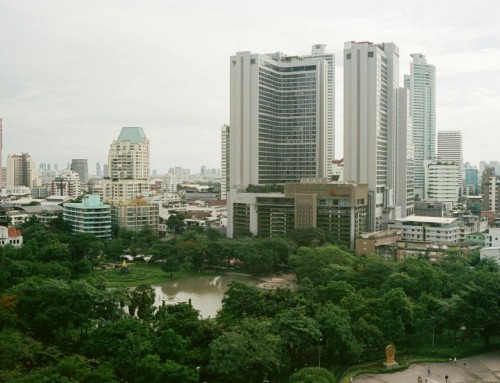In Singapore, property investment has always been viewed as a sure fire way to get rich. It is seen as a phase in life whereby one has to make a property purchase and this will seemingly keep up with inflation. However, if it were that simple then many individuals will be rolling in cash without the need for a day job. Increasingly, there are news articles about investors who have lost substantial sums of money when disposing of their property. Why is it then that there are some who can make tons of money through investing in property while others find it so difficult to find that pot of gold? Let’s take a look at some mistakes which wannabe investors may be making.
1) It is impossible to time the market to perfection
Many people will always mention that they are waiting for the opportunistic time for the market to tank before entering and buying up all the price area properties at distressed prices. While the market does correct itself from time to time, the reality of it is that in a place like Singapore, where it is one of the most livable city with almost full employment, property prices are rather resilient. The government has put in place measures and safeguards to ensure that this does not happen. The truth of the matter is that Singapore is a financial hub and property loans takes up a large portion of the portfolios of banks in Singapore. To have a catastrophic fall in property prices is a situation whereby the government will always look to prevent.
2) Investors have an unbalanced portfolio of assets
Many investors look to property as the only way to invest. They neglect the fact that there are other asset classes like equities, bonds and even using the money to start a business. What this means is that the layman investor keeps cash stowed away in his bank account for years on end, always waiting to make that one effective property purchase to catapult him to financial freedom. The reality of it is that there are tens and maybe hundreds of thousands worth of cash sitting in his bank account. This money is never going to earn more than the meager interest that the banks are giving. While this money is sitting idle, asset prices in the property market and stock market are getting higher. This layman investor meanwhile is seeing his ability to make a purchase erode further. The money should have been placed in other forms of investment that have the ability to appreciate over time and yet offer the investor some form of liquidity. The obsession with property investment causes many to have an impractical bias towards property in their investment portfolio.
3) Not all properties will appreciate over time
Singapore has come to a point whereby it’s asset prices are closer to the top than it is to the bottom. We have come a long way from the time when a flat cost a mere $7,000 to now whereby resale flat prices have crossed a million dollars. The notion that all properties will appreciate over time should be debunked and replaced with the following sentence.
“Property prices in a developing country with good governance and an open door policy towards foreign investment WILL appreciate over time”
This statement can be made in Singapore back in 1965 and perhaps to a large extent before the turn of the century. However, in today’s context, with property prices at our current levels, we will not be seeing many examples whereby property values can jump multiple folds.
4) Effective use of leverage
Despite what Warren Buffet has been warning about the dangers of leverage, not many people can afford to pay for their properties in full. There is an effective way to go about using leverage especially if the money can be put into other forms of investments which will give a higher rate of return than the interest to be paid. Leveraging gives an investor a better rate of return on his equity. Take the following illustration into consideration.
Property Price: $1,000,000
Cash used in purchase: $1,000,000
Property value increases by 20% to $1,200,000
Return on equity: $20%
Property Price: $1,000,000
Cash used in purchase (20% downpayment): $200,000
Property value increases by 20% to $1,200,000
Return on equity: $100%
In today’s relatively low interest rate environment, cost of leverage is low. Property investors should not be afraid to leverage on a potentially money making asset. There are loan packages which offer investors the flexibility to refinance their loan after the lock in period. If there is nothing in the market to give better returns than the cost of the interest, then the investor can choose to repay a portion or the whole of the property to the bank. In spite of this, there are still many investors looking to pay more than the required minimum downpayment on the property purchase.
5) Analysts are not the best people to listen to
Analysts are usually the people who produce articles in newspapers and magazines. Their main motive is to sell publications. Their views are usually based on hindsight and not indicative of what will happen in future. True investors go on the ground to analyze the sentiment on the market. It is perplexing as to why people listen to analysts way more than they do to property agents when the property agents are the ones who are on the ground dealing with transactions. It would be wise for keen property investors to get to know people who are familiar with property investment having gone through the process themselves.
While it may seem that investing in property is the best way to make decent profits, investment does come with a large degree of uncertainty and risk. Not everyone can stomach fluctuations in the market. Thus in my opinion, although all of us are told to consider investing our money, investing is not for everyone.
Yours Sincerely,
Daryl Lum






